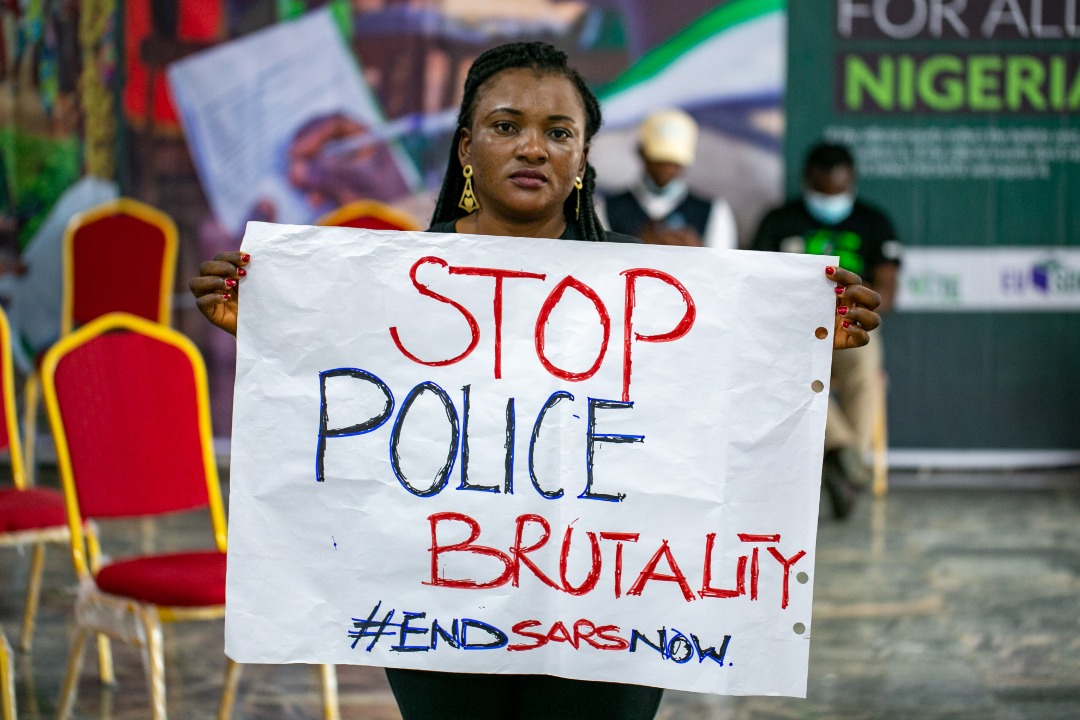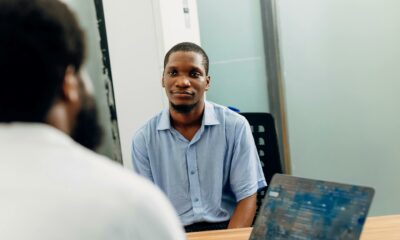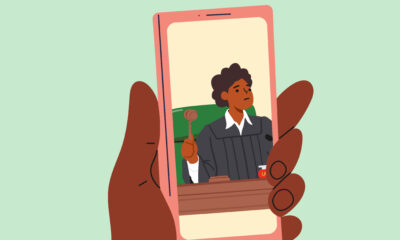Features
Can Our Votes End Police Brutality in The Country?
We must try to vote for a candidate who will take issues like police brutality as seriously as they should

For the past two years or more, I have made a conscious effort to travel wearing the least important cloth in my wardrobe, ones that wouldn’t make me look wealthy or too comfortable, or those that’ll make me look homeless, and jobless even, to avoid being waylaid by policemen on the road.
This is because internet fraud boys (yahoo-yahoo boys) became infamous in the country, and it is assumed that these boys wear flashy designer clothes or have a certain dress style. So anytime I dress this way while travelling, it is inevitable that I’d be stopped and checked. A few days ago, I was travelling back from my school in Ilorin after finishing my undergraduate degree and decided to wear what I wore the previous day for the trip – joggers and a long-sleeved black round-neck shirt, with my headset thrown around my neck. I had totally forgotten that the road to Ilorin from Osogbo is packed with different security forces: soldiers, police officers, and road safety men.
Throughout my journey, I was summoned by officers at each police checkpoint to be checked. It became embarrassing because other passengers began to think of me as a fraudulent person. At one point, some passengers asked the driver to drop me off so they could get to wherever they were going on time. I didn’t say a word. Every time I was checked, the police officers fumbled through my luggage, and everything in my bag was displayed including my underwear, to the other passengers. At a checkpoint, while one of the police officers inspected my bag, two other police officers were telling others like me to call someone who could send money to rescue them. One of the officers turned to me, “you, what do you do?” When I told them I was a journalist, their eyebrows lifted and I was immediately discharged. Before I was released, the officer inspecting me had asked to unlock my phone and was surfing through it. He clicked on my bank application and asked me to unlock it. I hesitated and did not reply.
I wasn’t going to talk about this journey because it wasn’t the first time police officers would make appalling requests. Some months ago, I was stopped and checked on my way to Ibadan. When the police officer found nothing, he told me I’d not leave the spot until I provided the receipt to my laptop. It’s impossible for me to travel around with my laptop receipt, as it is impossible for me to travel around with my phone receipt, I told him. I had to search my name on Google before he believed I was not a fraud.
My last encounter with a security force jolted me. In Nigeria, the Nigerian military is feared to the wall. If a military man walks on by the right side of the road, we take the left because you never can tell what pisses them off and their punishments are always near-death. On this journey, there were five military checkpoints. At each point, you are expected to keep your phone away, avoid eye contact with them, and be sure you have nothing on you that could draw their attention to you. I had nothing on me. I had kept my phone away. And I was not going to have eye contact with them. At the first checkpoint, a soldier inspected me inside the bus for more than a minute. I blamed myself for sitting by the window. He asked us to go. As we left the checkpoint, I could feel the other passengers’ stares on me; they were probably cursing me for boarding the same bus as them. I didn’t blame them either. How could I? Wasn’t I to be blamed for being stupid to dress properly?
At the third military checkpoint, I pretended to be sleeping and placed my head on the seater before me. The soldier tapped me and asked me to come down. He directed me to his colleague sitting under a hut. When I got there, there was also a guy around my age who was wearing an armless white shirt with a green dragon emblazoned on it. Interestingly, he was chatting with the military man. I was shoved inside because I was close to wetting my trousers as I approached him. If you don’t fear soldiers in Nigeria, you’re probably a god. I approached him and waited until he finished with the guy. Inside the hut beside him, there was a light green bowl filled with naira notes. The guy emptied his pockets and told him he really had nothing on him. “I used to drop something whenever I pass here,” the guy said and the soldier asked him to go.
He faced me and asked what was in my bag. I mentioned everything and intentionally mentioned the laptop last. At the mention of the laptop, he smiled and said, “I don’t need to trouble you. What do you have on your laptop?”
“Just work stuff and maybe movies.”
“Ehn ehn? What do you do?” He asked and I told him I am a journalist. He didn’t appear bothered.
“You journalists are the rich people now na. Give me 5k and be going,” he requested. In my entire life, I’d never heard or seen soldiers request bribes. As I stood there and wondered what to say, a bus full of plantain stopped and dropped a bunch with him. He placed them with others he had collected. There were yams, oranges and some other plant harvests. Were these people actually securing the road or exploiting it? I told him we were still in the middle of the month and I hadn’t been paid. I felt stupid, and I was oscillating inside. I’d prayed not to ever fall into the wrath of the military. When I failed to give him money, he requested to be given the headset around my neck. I was never going to give it to him; I simply told him it was a device for work and quite amazingly, he released me. When I got back on the bus, other passengers had created a space for me somewhere in the middle and I was strapped between two women till I got to Osogbo. I didn’t say a word.
In 2021, my friend Pelumi Salako, who’s also a journalist, was coming from a birthday party when he was arrested even though the security forces found nothing incriminating on him. There are other many stories of police harassment. In October 2020, Nigerian youths took to the streets in the entire county to protest against harassment from the Special Anti-Robbery Squad (SARS) and the protests ended in a mass killing at Lekki Toll Gate. The aftermath of the protests shows that now is not the time to rest on our oars. As we prepare for the coming elections, it is essential for Nigerians to understand that the forthcoming election is not just a vote for a candidate; it is a fight for our lives.
We must try to vote for a candidate who will take issues like police brutality as seriously as they should and work towards bringing it to an end. Your vote is your voice, use it wisely.





















